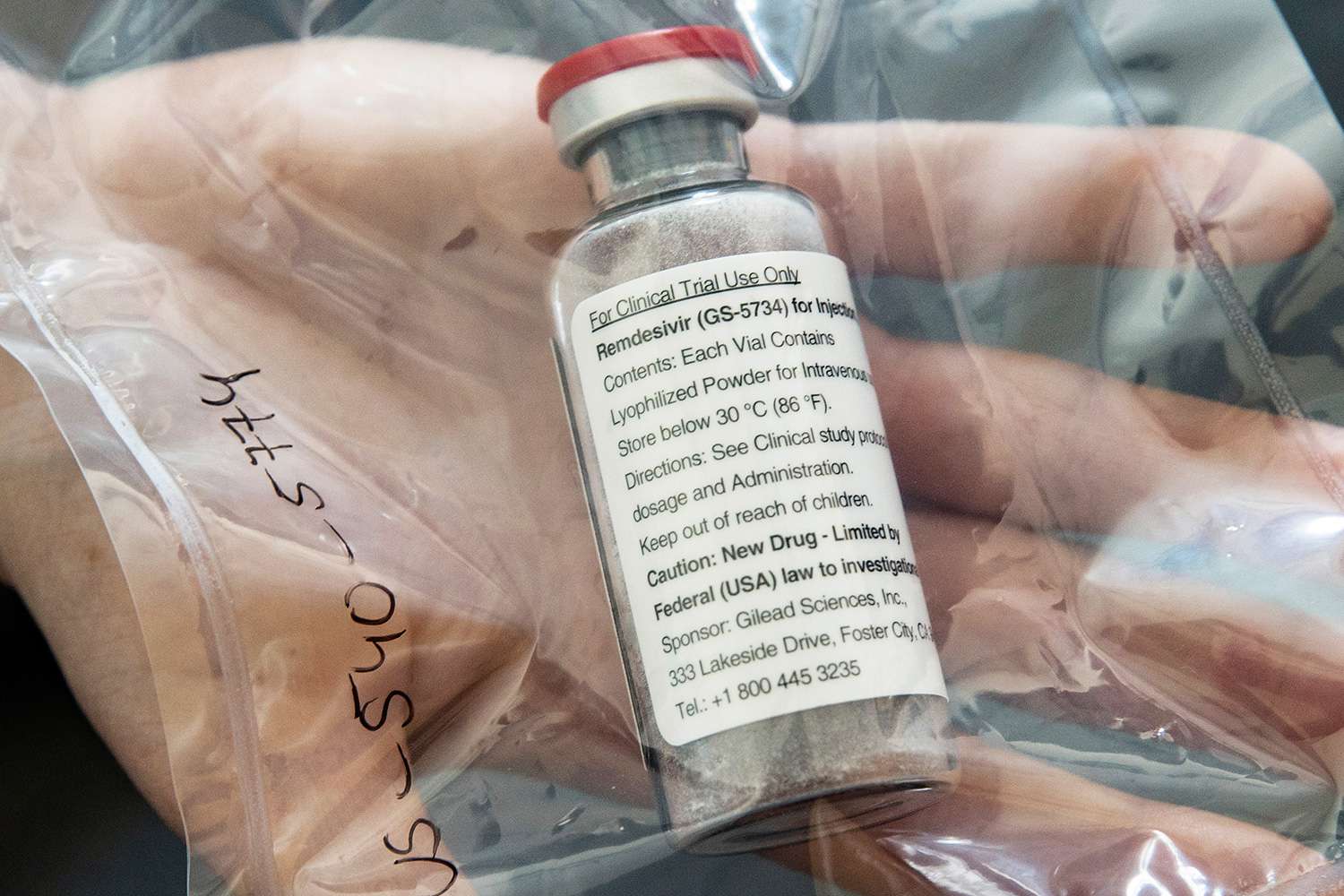
A new study shows that remdesivir, an experimental antiviral drug, may help lower the risk of death for people with serious coronavirus conditions.
More than half of the patients in the small preliminary trial — who had all been hospitalized with severe cases of COVID-19 — saw improvements during the course of the 28-day trial, according to a study published last week in the New England Journal of Medicine.
Out of the 53 patients for whom data was collected, 36 showed signs of improvement by the end of the trial, according to the study.
Additionally, 17 of the 30 patients who had been on ventilators at the start of the trial were able to be taken off the machines. Signs of improvement were also seen in three out of four patients who were placed on ECMO machines to help aid their hearts and lungs.
And just under 50 percent of patients, or 25 people, were released from the hospital. Seven patients died. Study authors pointed out that the 13 percent mortality rate in the study compared favorably to data available from China, where there 17 to 78 percent of seriously ill coronavirus patients have died.
Although the results from the initial study are hopeful, more research and testing needs to take place before “definitive conclusions” can be reached.
“We cannot draw definitive conclusions from these data, but the observations from this group of hospitalized patients who received remdesivir are hopeful,” said lead author Jonathan D. Grein, Hospital Epidemiology director at Cedars-Sinai Medical Center in Los Angeles, according to the Washington Post. “We look forward to the results of controlled clinical trials to potentially validate these findings.”
For the study, the drug was administered to patients as part of a “compassionate use” trial, which allows seriously ill patients who have no other options available to receive experimental medication.
“It’s still a promising drug, but it doesn’t definitively prove anything,” added Paul Goepfert, an infectious disease specialist at the University of Alabama, who was not involved in the study. “The main thing you can gather from this study is it doesn’t cause any untoward harm.”
The antiviral drug was initially developed by Gilead Sciences to treat patients with Ebola, although other medications were determined to be more effective for humans, according to The Los Angeles Times. However, the experimental drug has proved helpful in combating SARS and MERS in animals.
Speaking about drug in the past, Coronavirus Task Force member Dr. Anthony Fauci has also stressed that additional studies will be necessary before determining whether remdesivir will be a “safe and effective treatment for COVID-19.”
“Although remdesivir has been administered to some patients with COVID-19, we do not have solid data to indicate it can improve clinical outcomes,” he said last month. “A randomized, placebo-controlled trial is the gold standard for determining if an experimental treatment can benefit patients.”
As of Monday, there have been at least 1,864,629 confirmed cases of coronavirus and 115,286 deaths worldwide.
As information about the coronavirus pandemic rapidly changes, PEOPLE is committed to providing the most recent data in our coverage. Some of the information in this story may have changed after publication. For the latest on COVID-19, readers are encouraged to use online resources from CDC, WHO, and local public health departments. To help provide doctors and nurses on the front lines with life-saving medical resources, donate to Direct Relief here.
Source: Read Full Article
